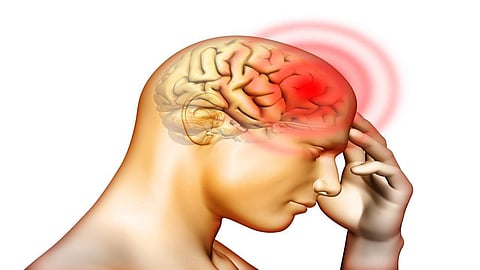

MIAMI: A study of 21 American diplomats who claimed they were victims of mysterious sonic attacks in Cuba shows they sustained brain injuries without any apparent head trauma, US researchers said Thursday.
Researchers from the University of Pennsylvania's Perelman School of Medicine examined 21 US government staff members who complained of symptoms resembling a concussion after serving in Havana in 2016 and 2017.
"These individuals appeared to have sustained injury to widespread brain networks without an associated history of head trauma," said the report in the Journal of the American Medical Association (JAMA).
Dizziness, headaches, ear pain, hearing problems, difficulty concentrating and reading, sensitivity to light, and sleeplessness were among the symptoms reported.
Many suffered from the effects for more than three months, and the symptoms were so severe that they were unable to work.
Eighteen of the 21 individuals reported "hearing a novel, localized sound at the onset of symptoms in their homes and hotel rooms."
They described the sounds as "directional, intensely loud, and with pure and sustained tonality."
Most patients said the sound was high-pitched. Only two thought it was a low-pitched sound.
"Words used to describe the sound include 'buzzing,' 'grinding metal,' 'piercing squeals,' and 'humming,'" said the JAMA report.
Some said the experience felt like pressure or a vibrating sensation, similar to traveling in a car with the windows partially rolled down.
Three said they heard no sounds at all.
"Both the sound and sensory stimuli were often described as directional in that the individuals perceived a distinct direction from which the sensation emanated," said the JAMA report.
Some people said that after they changed location, "the sensation disappeared and the associated symptoms reduced."
Five said that covering their head or ears did not help.
MRI scans were performed, and came back normal.
An accompanying editorial in JAMA said a "unifying explanation for the symptoms experienced by the US government officials described in this case series remains elusive and the effect of possible exposure to audible phenomena is unclear."
Researchers also said it remains "unclear if or how the noise is related to the reported symptoms," since sounds in the audible range (20 Hz-20,000 Hz) are "not known to cause persistent injury to the central nervous system."
Chemical agents and viruses were also deemed unlikely to have led to the symptoms.
More research is needed to determine what caused the apparent head trauma, and US employees traveling to Cuba should "undergo baseline testing prior to deployment to allow for a more informed interpretation of abnormalities that might later be detected after a potential exposure," said the JAMA editorial.
Following the spate of illnesses, in late September the US withdrew more than half of its diplomatic staff in Cuba and expelled 15 Cuban diplomats from Washington.
Cuba has called the allegations "totally false" and an attempt at "political manipulation," and insists it has shown good will by letting FBI investigators visit the island three times this year to investigate.